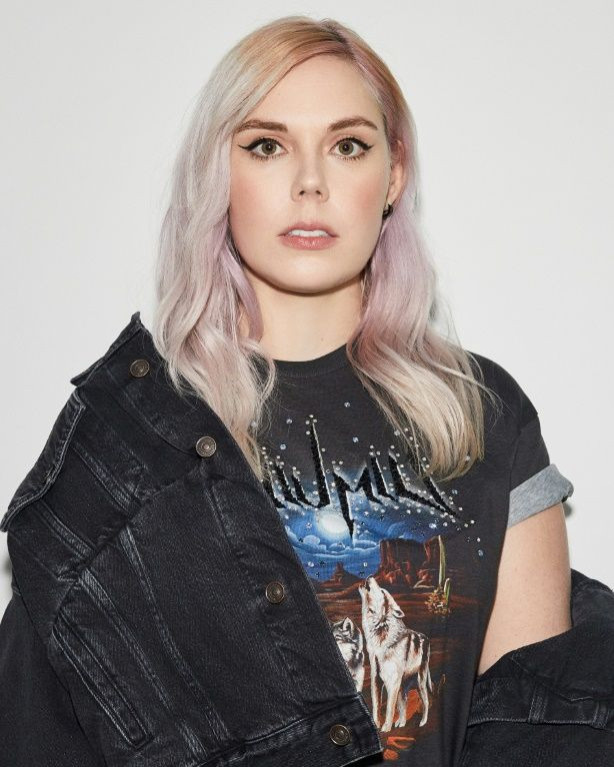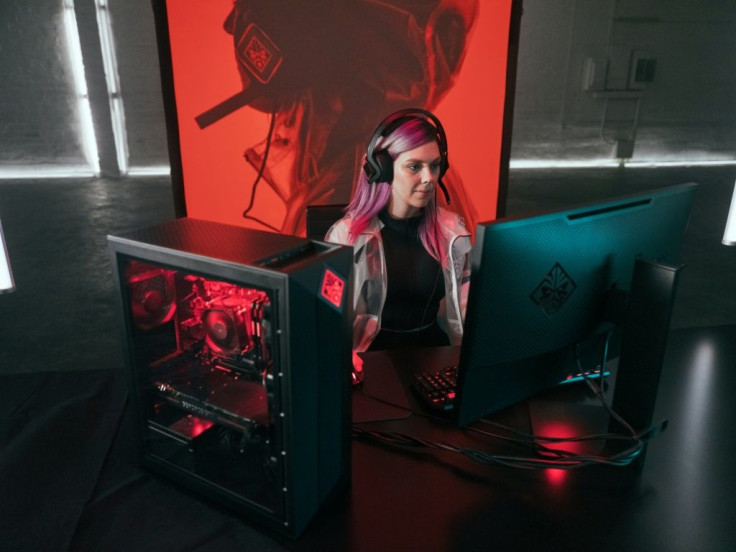Champion Canadian Gamer Speaks Out Over Harassment At Ubisoft, Elsewhere
When she arrived in 2009 at the Montreal offices of giant video game publisher Ubisoft, Stephanie Harvey says she suffered sexual harassment or sexism "from Day One."
Now a professional gamer and five-time world champion, she said that not only her former employer but the entire video game industry is long past due for a major change in culture.
The recent sexual-harassment scandal shaking Ubisoft, the leading French video game publisher and one of the biggest names around the world, is only the tip of the iceberg, the 34-year-old Quebec native told AFP.
"I'm convinced that what is taking place at Ubisoft is causing huge waves in other companies, because this is not just happening at Ubisoft," said Harvey, a champion in the Counter-Strike game world, where she is better known by her screen name, "missharvey."
The movement has taken on "huge dimensions," she added.
"It's also taking place online, on the Internet, the big streaming companies are being accused, the YouTubers," said Harvey, who works on product development with an American "e-sports" company.

Following a wave of accusations of sexism and harassment against Ubisoft's leadership -- some of the company's 18,000 employees have described a "climate of terror" -- the group recently dismissed its Number Two, its human resources director and the head of its Canadian studios.
CEO Yves Guillemot has promised "major changes in corporate culture."
AFP has obtained and cross-checked several other reports of harassment in the video game sector, at Ubisoft and elsewhere, since late June, when their testimony started appearing on social media.
One of them recalled being "pinched on the butt and breast" while at Ubisoft.
Harvey says she is willing to be quoted by name because she wants things to change in the industry.

"I would say it happened to me from Day One," she said.
She spent eight years at Ubisoft Montreal, which likes to call itself the "biggest video game studio in the world," finally leaving in 2017.
"The number of times I was accosted by Ubisoft employees, saying things like, 'Oh, you're new, you must be in human resources; you couldn't possibly work in gaming' -- it happened often," she said, comparing the atmosphere to that of a boys' locker room.
One day, while she was moving belongings to a different office, an employee stopped the elevator between floors and told her, 'This is the best place to sleep with someone at Ubisoft,'" she said. It left her shaken.
But as a top professional player since 2005, "missharvey" said her surroundings at Ubisoft were not that different from the gaming environment she knew so well.
"For me, it wasn't just a problem with Ubisoft, it was a problem of a men's world with few women," she said, adding that otherwise she "loved" her time at the giant French company.
Harvey often thinks back to the time when another gamer "grabbed my ass" during a professional event four years ago.
"Everything that happened to me, I put it in a box. I thought I was OK with what had happened to me in my life. But then the box opened up again and I'm no longer OK with it," she said, clearly moved by the memory.
The first high-profile case in the sector dates to "Gamergate" in 2014 -- the name given to the cyber-harassment of American game creator Zoe Quinn, three years before the #MeToo movement emerged.
Harvey, a self-described "feminist and activist," in 2013 co-founded Missclicks, an online community that aimed to support women in the gaming sector.
She says both Ubisoft and the larger sector need to "work on company culture," for example by holding training sessions on sexist biases or by recruiting more women.
She hopes the Ubisoft affair will raise awareness of the problem of human-resource departments in the sector's big companies.
While she was still at Ubisoft, Harvey says it never occurred to her to complain. "There was zero confidentiality in Human Resources at Ubisoft," she said.
"I hope this is only the beginning... That they provide the resources and system in Montreal to allow women to feel more respected."
© Copyright AFP 2024. All rights reserved.





















